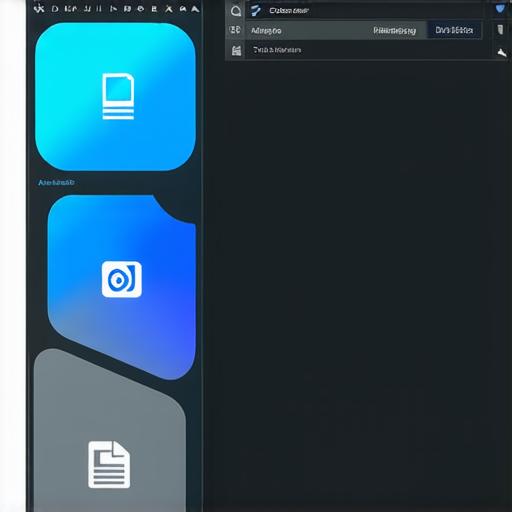An IDE is a software suite that provides a complete development environment for writing, testing, and debugging code. Some popular IDEs include Visual Studio Code, IntelliJ IDEA, and Eclipse.
These tools can help you write code more efficiently, and often come with features like syntax highlighting, auto-completion, and built-in debuggers. With an IDE, you can easily manage your project’s files, run tests, and fix bugs in real-time.
2. Text Editor:
While IDEs are great for writing complex applications, text editors are often preferred by developers who need a simple and lightweight editor. Some popular text editors include Sublime Text, Atom, and Notepad++.
These tools are great for writing small scripts or quick tasks, and often come with features like syntax highlighting and code folding. With a text editor, you can focus on the code without being distracted by unnecessary features.
3. Package Manager:
A package manager is a tool that helps you manage the dependencies of your project. It allows you to install and uninstall packages, as well as update them to the latest version. Some popular package managers include npm, yarn, and pip.
These tools can help you save time by automating the process of managing dependencies, and often come with features like version control and dependency resolution. With a package manager, you can easily install and manage any packages needed for your project.
4. Code Debugging Tools:
Debugging tools are essential for finding and fixing errors in your code. Some popular debugging tools include Chrome DevTools, Firefox DevTools, and Visual Studio Debugger.
These tools allow you to step through your code, inspect variables, and set breakpoints, which can help you find the source of any issues quickly and easily. With a debugger, you can catch and fix bugs before they become major problems.
5. Code Version Control Software:

Code version control software is an essential tool for developers who need to collaborate on projects with multiple team members. It allows you to track changes made to the code by different team members, merge code changes, and revert back to previous versions if needed. Git is one of the most popular version control systems, but there are many others available, including SVN and Mercurial.
With code version control software, you can ensure that all changes made to your code are recorded and accessible for future reference.
6. Integrated Development Environments (IDEs):
An IDE is a software suite that provides a complete development environment for writing, testing, and debugging code. Some popular IDEs include Visual Studio Code, IntelliJ IDEA, and Eclipse.
These tools can help you write code more efficiently, and often come with features like syntax highlighting, auto-completion, and built-in debuggers. With an IDE, you can easily manage your project’s files, run tests, and fix bugs in real-time.
7. Text Editor:
While IDEs are great for writing complex applications, text editors are often preferred by developers who need a simple and lightweight editor. Some popular text editors include Sublime Text, Atom, and Notepad++.
These tools are great for writing small scripts or quick tasks, and often come with features like syntax highlighting and code folding. With a text editor, you can focus on the code without being distracted by unnecessary features.
8. Package Manager:
A package manager is a tool that helps you manage the dependencies of your project. It allows you to install and uninstall packages, as well as update them to the latest version. Some popular package managers include npm, yarn, and pip.
These tools can help you save time by automating the process of managing dependencies, and often come with features like version control and dependency resolution. With a package manager, you can easily install and manage any packages needed for your project.
9. Code Debugging Tools:
Debugging tools are essential for finding and fixing errors in your code. Some popular debugging tools include Chrome DevTools, Firefox DevTools, and Visual Studio Debugger.
These tools allow you to step through your code, inspect variables, and set breakpoints, which can help you find the source of any issues quickly and easily. With a debugger, you can catch and fix bugs before they become major problems.
10. Code Version Control Software:
Code version control software is an essential tool for developers who need to collaborate on projects with multiple team members. It allows you to track changes made to the code by different team members, merge code changes, and revert back to previous versions if needed. Git is one of the most popular version control systems, but there are many others available, including SVN and Mercurial.
With code version control software, you can ensure that all changes made to your code are recorded and accessible for future reference.
In conclusion, these 10 tools are essential for any developer looking to write efficient and reliable code. Whether you’re a beginner or an experienced programmer, using these tools can help you streamline your development process and improve the quality of your work.
